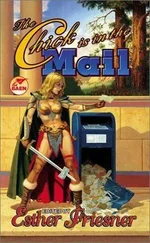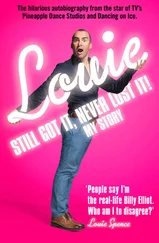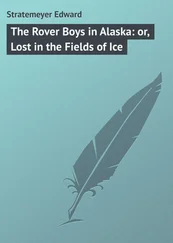Lost in the Mail
Здесь есть возможность читать онлайн «Lost in the Mail» весь текст электронной книги совершенно бесплатно (целиком полную версию без сокращений). В некоторых случаях можно слушать аудио, скачать через торрент в формате fb2 и присутствует краткое содержание. Год выпуска: 1995, Издательство: Island Specialty Reports, Жанр: Фантастика и фэнтези, на английском языке. Описание произведения, (предисловие) а так же отзывы посетителей доступны на портале библиотеки ЛибКат.
- Название:Lost in the Mail
- Автор:
- Издательство:Island Specialty Reports
- Жанр:
- Год:1995
- ISBN:нет данных
- Рейтинг книги:5 / 5. Голосов: 1
-
Избранное:Добавить в избранное
- Отзывы:
-
Ваша оценка:
- 100
- 1
- 2
- 3
- 4
- 5
Lost in the Mail: краткое содержание, описание и аннотация
Предлагаем к чтению аннотацию, описание, краткое содержание или предисловие (зависит от того, что написал сам автор книги «Lost in the Mail»). Если вы не нашли необходимую информацию о книге — напишите в комментариях, мы постараемся отыскать её.
Lost in the Mail — читать онлайн бесплатно полную книгу (весь текст) целиком
Ниже представлен текст книги, разбитый по страницам. Система сохранения места последней прочитанной страницы, позволяет с удобством читать онлайн бесплатно книгу «Lost in the Mail», без необходимости каждый раз заново искать на чём Вы остановились. Поставьте закладку, и сможете в любой момент перейти на страницу, на которой закончили чтение.
Интервал:
Закладка:
By me.
My head swam for a moment. I was used to seeing my byline in print. It’s just that I usually remembered writing whatever it was attached to, that’s all.
It must be somebody with the same name, of course. Hell, Coin wasn’t that unusual. Besides, this guy was down in Mexico. I turned to the indicated page. There was the article, the writer’s name, and his institutional affiliation: Research Associate, Department of Vertebrate Paleontology, Royal Ontario Museum, Toronto, Canada.
It came back in a deluge of memory. The ROM had undertaken a dig in Mexico a few summers ago. A local newspaper, The Toronto Sun , had sponsored it. I remembered it as much because of my dormant interest in dinosaurs as because it seemed so out-of-character for the tabloid Sun—best known for its bikini-clad Sunshine Girls—to foot the bill for a scientific expedition.
I was disoriented for several seconds. What was going on? Why did I even have a copy of this publication? Then it hit me. Of course. All so simple, really. There must be someone at the ROM with the same initials and last name as me. He (or she, maybe) had written this article. The Journal had somehow lost his address, so they’d looked him up in the phone book to send a contributor’s copy. They’d gotten the wrong J. H. Coin, that’s all.
I decided I’d better return the guy’s Journal to him. Besides, this other Coin would probably get a kick out of the story of how his copy had ended up with me. I know I would.
I phoned the Royal Ontario Museum and spoke to a receptionist who had a pleasant Jamaican accent. “Hello,” I said. “J. H. Coin, please.”
“Can you tell me which department?” she asked.
He can’t have made a big name for himself if the receptionist didn’t know where he worked. “Paleontology.”
“Vert or invert?”
For a second I didn’t understand the question. “Oh—vertebrate.”
“I’ll put you through to the departmental assistant.” I often had to contact presidents of petrochemical firms for quotes, so I knew that how difficult it was to get hold of someone could be a sign of how important he or she was. But this shunting struck me as different. It wasn’t that J. H. Coin had to be shielded from annoying calls. Rather, it was more like he was a fossil, lost in layers of sediment.
“Vert paleo,” said a woman’s voice.
“Hello. J. H. Coin, please.”
There was a pause, as though the departmental assistant was momentarily confused. “Ah, just a second.”
At first I thought that she, too, hadn’t heard of J. H. Coin, but when the next person came on I knew that wasn’t it. The voice seemed slightly alien to me: deeper, less resonant, more nasal than my own—at least than my own sounds to me. “Hello,” he said, politely, but sounding somewhat surprised at being called at work. “Jacob Coin speaking.”
Jacob and Coin. Sure, some names go together automatically, like John and Smith, or Tom and Sawyer or, if you believe the Colombian Coffee Growers’ commercials, Juan and Valdez. But Jacob and Coin weren’t a natural pair. I was named after my mother’s father. Not some literary allusion, not some easy assonance, just a random line of circumstances.
I wanted to ask this Jacob Coin what his “H” stood for. I wanted to ask him what his mother’s maiden name was. I wanted to know his birth date, his social insurance number, whether his left leg gave him trouble when it was about to rain, whether he was allergic to cheese, if he had managed to keep his weight under control. But I didn’t have to. I already knew the answers.
I hung up the phone. I hated doing it only because I know how much I hate it when that happens to me—how much he must hate it, too.
I heeded John Paul’s buzz again on Friday. This time, though, I didn’t wait for him to assemble my pile of mail. Instead, I snapped up each envelope as he placed it on the counter. The first three really were for me: a check from one of my publishers, a birthday card from my insurance agent, and my cable-TV bill. But the fourth was bogus: a gray envelope addressed to J. H. Coin, Ph.D. The return address was Royal Ontario Museum Staff Association.
“Wait a minute,” I said.
The Pontiff was busy dealing out lives into the little mailboxes. “Hmm?”
“This one isn’t for me.”
“Oh, sorry.” He reached out to take it. For a moment I thought about keeping it, holding on to that piece of what might have been, but, no, I let him have it.
He looked at it, then frowned. “You’re J. H. Coin, ain’t you?”
“Well, yes.”
“Then it is for you.” He proffered the envelope, but now that I’d let it go I couldn’t bring myself to take it back.
“No. I mean, I’m not that J. H. Coin.” The Pope said nothing. He just stood there holding the letter out towards me. I shook my head. “I don’t have a Ph.D.”
“Take that up with whoever wrote you,” he said. “I worry about apartment numbers and postal codes, not diplomas.”
“But I don’t want it. It’s not mine. I don’t work at the Museum.”
John Paul let out a heavy sigh. “Mr. Coin, it’s addressed correctly. It’s got sufficient postage. I have to deliver it to you.”
“Can’t you send it back?”
“I’ve been doing you a big favor all this time, calling you down instead of stuffing your things into that little box. Don’t make me sorry that I’ve been nice to you.” He looked me straight in the eye. “Take the letter.”
“But yesterday you brought me The Journal of Vertebrate Paleontology . And the day before, the University of Toronto Alumni Magazine. None of those things were meant for me.”
“Who’s to say what’s meant for any of us, Mr. Coin? All I know is I’ve got to deliver the mail. It’s my job.”
He went back to his bag. The next thing he pulled out happened to be for me, too. Sort of. Instead of placing it on the counter, he tried to hand it to me directly. It was a letter hand-addressed to Mr. and Mrs. Jake Coin.
I shook my head again, more in wonder than negation this time. “There is no Mrs. Coin.”
“You have to take it,” he said.
It was tempting, in a way. But no, she wasn’t my wife. She wasn’t part of my world. I didn’t move.
He shrugged and put the envelope in the empty cubicle that had my apartment number on it.
I didn’t want this other Coin’s life forced upon me. “Take that out of there,” I said.
John Paul continued distributing mail, ignoring me the way he might ignore a stranger who tried to strike up a conversation on the subway. I grabbed his arms and attempted to swing him around. The old guy was a lot stronger than he looked—thanks, I guess, to hauling that great sack of letters around. He pushed me away easily and I fell backward against the vestibule’s inner glass door. For a horrible instant I thought the pane was going to break and come tumbling down on me, but it held solid. The Pontiff had wheeled around and was now aiming a tiny aerosol can of Mace at me.
“Don’t ever try that again,” he said in his mysterious European voice, not shouting, really, but with a firmness that made the words sound loud.
“Just tell me what’s going on,” I said. “Please.”
We held our eye contact for a moment. His expression wasn’t the indignation of a man who has suffered an unprovoked attack. Rather, it was more like the quiet turmoil of a father who’s had to spank his child. “I’m sorry,” he said.
Damn the man’s infinite patience. I was angry and I wanted him to be angry, too. “Look,” I said at last, “you keep bringing me the wrong mail.” I hated the quaver my voice had taken on. “I—I don’t want to have to report you to your supervisor.”
Читать дальшеИнтервал:
Закладка:
Похожие книги на «Lost in the Mail»
Представляем Вашему вниманию похожие книги на «Lost in the Mail» списком для выбора. Мы отобрали схожую по названию и смыслу литературу в надежде предоставить читателям больше вариантов отыскать новые, интересные, ещё непрочитанные произведения.
Обсуждение, отзывы о книге «Lost in the Mail» и просто собственные мнения читателей. Оставьте ваши комментарии, напишите, что Вы думаете о произведении, его смысле или главных героях. Укажите что конкретно понравилось, а что нет, и почему Вы так считаете.











